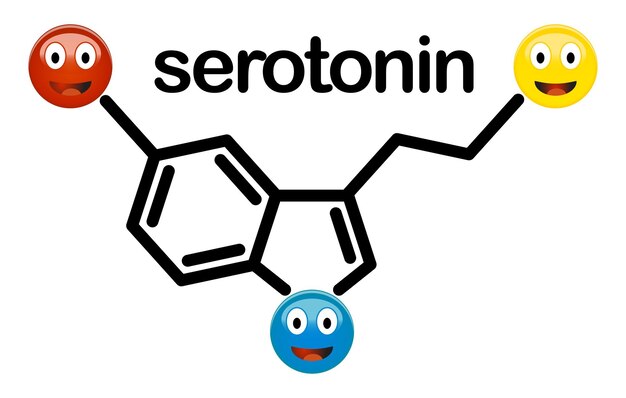Depression has become a pretty common mental health problem affecting 280 million people worldwide. Unlike normal feelings of loss, sadness, and mood swings, depression persistently interferes with an individual’s thoughts, function, behavior, and physical health.
One of the leading contributors to depression is low levels of critical neurotransmitters- serotonin, norepinephrine, and dopamine. For a long time, antidepressant medications have been prescribed to improve the levels of these neurotransmitters.
While these remedies have proved effective, researchers are exploring more holistic approaches. Amino acid therapy is one such remedy that aims to improve the production and repair of neurotransmitters in the body naturally. Here’s how it helps treat depression.
What is Depression?
Depression is a mental health disorder that causes an individual to develop sadness and loss of interest in regular activities for a long time. You constantly feel unhappy, sorrowful, and miserable without a cause. David felt the same way at one point in his life when he wrote in one of his Psalms to God: For when I kept silent, my bones wasted away through my groaning all day long Psalm 32:3.
Depressive episodes last longer than regular mood fluctuations, usually for a day (s), weeks, or months. A person with depression is likely to exhibit the following symptoms:
- Disrupted sleep
- Poor concentration
- Changes in appetite
- Weight loss
- Suicidal thoughts
- Feelings of low self-worth or guilt
- Low energy or constant fatigue

Depressive episodes can be mild, moderate, or severe based on the severity of the symptoms. This happens when there’s an imbalance in neurotransmitter levels (usually dopamine and serotonin hormones). Typically, neurotransmitters are made from amino acids, mineral cofactors, and vitamin coenzymes.
When the body has low levels of vitamin cofactors like Vitamin B, C, iron, magnesium, or manganese, it can’t convert amino acids into neurotransmitters effectively. Doctors often prescribe selective serotonin uptake inhibitors (SSRI) to increase and recirculate neurotransmitter levels in people with depression.
Even so, when an individual has low serotonin levels due to nutrient deficiencies, low stomach acid, or a poor diet, the antidepressants (SSRI medication) don’t find much to recirculate. The medication only stimulates the circulation of the neurotransmitters until the body gets exhausted.
That’s why patients with depression experience improved moods at first, but then the body develops resistance, and they have to look for more effective antidepressants. Therapies that modulate neurotransmitter production instead of recycling the already low levels are more effective at managing depression and amino acid therapy is one such remedy.
What is Amino Acid Therapy?
Amino acid therapy is a treatment that focuses on repairing the neurotransmitter system of the brain. Typically, amino acids are the building blocks of proteins that play a vital role in the growth and repair of body tissues.
They also help in neurotransmitter repair and restoration, the chemicals responsible for transmitting signals between the brain nerve cells. This is important because depression results from imbalances in the neurotransmitter system.
Amino acid therapy improves the production of specific amino acids tailored to address the problem. They increase neurotransmitter production, enhance binding to brain receptors, and improve function.
Note that the focus here is on supporting the body’s natural processes to promote healing without pharmaceutical interventions. The best Amino Acid Formula is by Pure Encapsulation. Check out this link for discount and use code Amino acid therapy focuses on improving three specific amino acids:
L-Theanine
This amino acid increases alpha brainwave activity which enhances one’s attention and relaxation. It’s useful to those who find it challenging to wind down at night and handle stress.
L-theanine amino acid attaches to the neurotransmitter called glutamate to create an inhibitory effect in the brain and promote relaxation. It also increases the production of GABA to ensure the brain receives healthy dopamine levels.
Doctors prescribe L-theanine to people who don’t respond well to GABA. L-theanine can be found in green and black tea and specific types of mushrooms.
Gamma-aminobutyric Acid (GABA)
This is an inhibitory neurotransmitter that reduces anxiety and improves relaxation in the central nervous system. It has a calming effect hence great for people experiencing high stress levels. Lactobacillus-fermented foods like pickles, yogurt, kimchi, and sauerkraut are rich in GABA amino acids. It’s also available in supplement form.
5-Hydroxytryptophan (5-HTP)
The amino acid is the most effective at treating depression because it can be converted to serotonin directly. 5-HTP creates a sense of calmness and relaxation and regulates the natural sleep cycle. The amino acid is readily available in supplement form.
Conclusion
Dealing with depression can be challenging especially if you’ve tried many antidepressants without results. Amino acid therapy presents an alternative remedy that doesn’t require administering synthetic chemicals to the body. Rather it supports the neurotransmitter repair and brain health, to eliminate depressive episodes.







